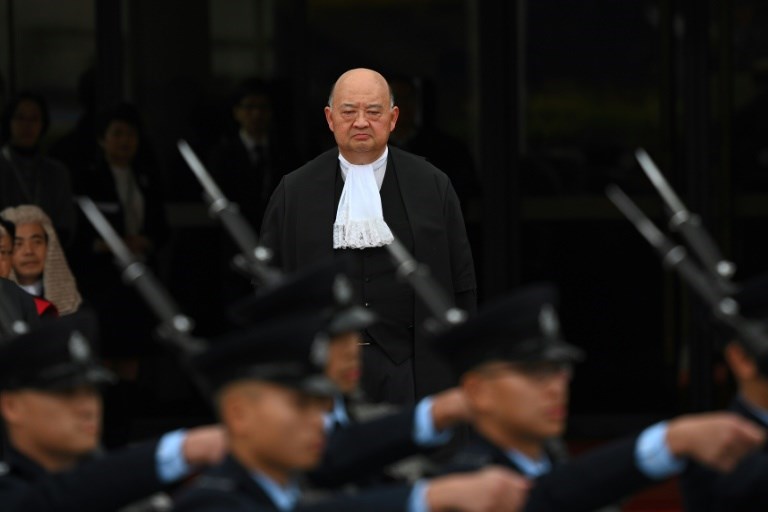Hong Kong's top judge on Monday delivered a passionate defence of the city's legal system as it struggles with a backlog of protester trials and accusations of bias from all sides.
The semi-autonomous city has an independent, British-style judiciary -- viewed as one of the bedrocks of the financial hub's identity and a key factor differentiating it from mainland China.
Its courts have been overloaded during seven months of sometimes violent democracy protests that have seen more than 6,500 people arrested, of whom around a thousand are undergoing or have completed legal proceedings.
Since the protests began, "many commentaries have been given as to the work of the courts and many views have been expressed regarding our judges", Chief Justice Geoffrey Ma said.
"A lot of these have been fair, but unfortunately, some have proceeded on misconceptions and misunderstandings," he added in a speech to mark the opening of the legal year.
Ma, who will retire early next year, emphasised the impartiality of the judiciary and its obligation to ensure fair trials.
"Judges look only to the letter of the law and to the spirit of the law, and nothing else. Political, economic or social considerations... simply do not enter into the equation," he said.
In November, China condemned a Hong Kong court's decision to overturn a ban on face masks worn by democracy protesters, asserting that only Beijing can rule on constitutional issues.
The same month, China's state-controlled Global Times tabloid published an editorial accusing Hong Kong's High Court and some judges of abusing their powers.
Hong Kong enjoys freedoms unseen on the mainland as part of the "one country, two systems" deal made when colonial power Britain handed it back to China in 1997.
But there are concerns that these liberties are being eroded by an increasingly authoritarian Beijing.
Last month petrol bombs were thrown at the outside walls of the city's court houses, while graffiti was recently daubed across the High Court saying "Rule of law is dead" and accusing one judge of pro-China bias.
At Monday's ceremony -- a traditional event where judges and lawyers wore wigs and robes -- Ma said both he and the public were committed to Hong Kong's "cherished" rule of law.
He warned that without it, social unity was under threat.
"We must do all our best to preserve it and to treasure it because once damaged, this is not something from which our community can easily recover," he said, adding that the right to protest was not an excuse for violence.
Ma also acknowledged the high volume of legal cases generated by the protests and said plans were being put into place to handle the backlog more quickly.



